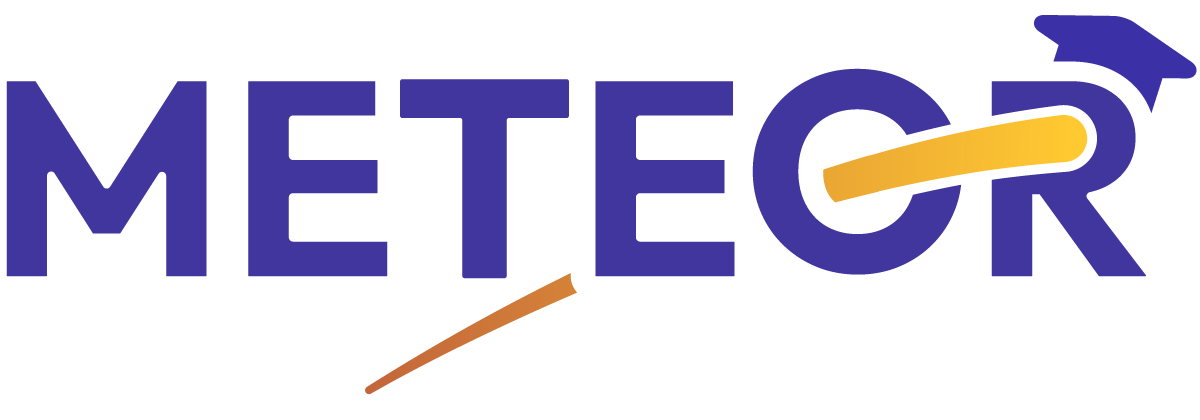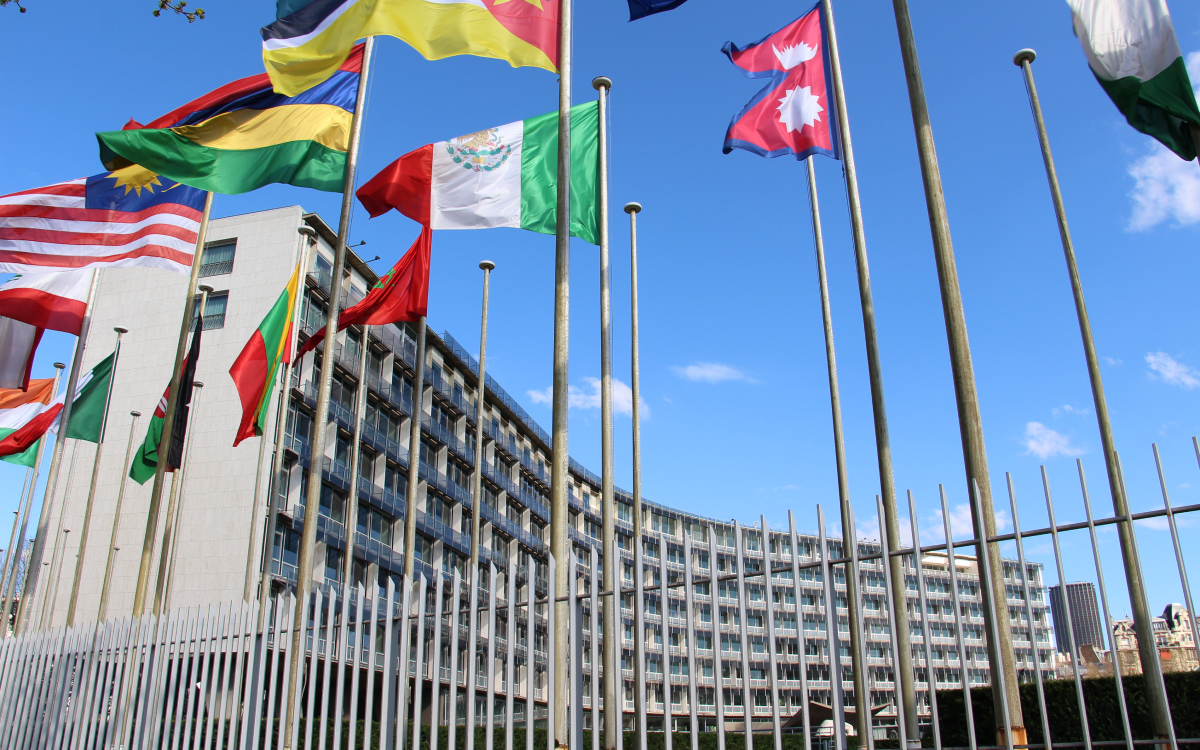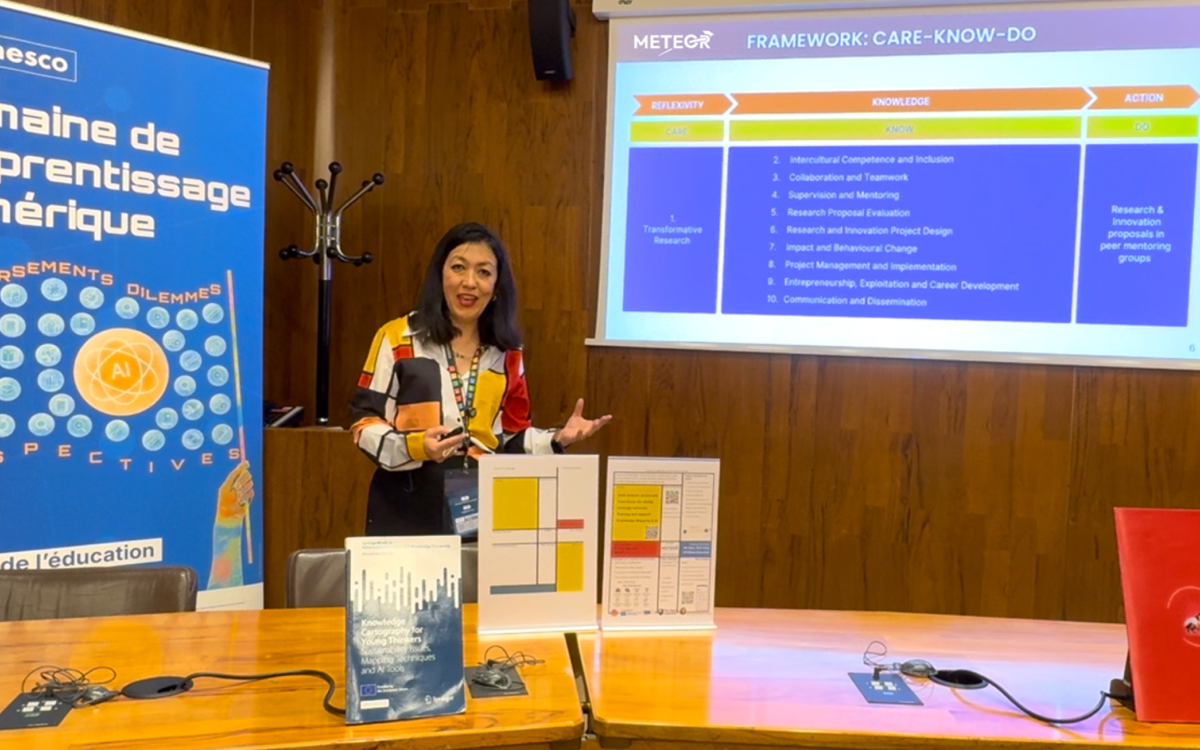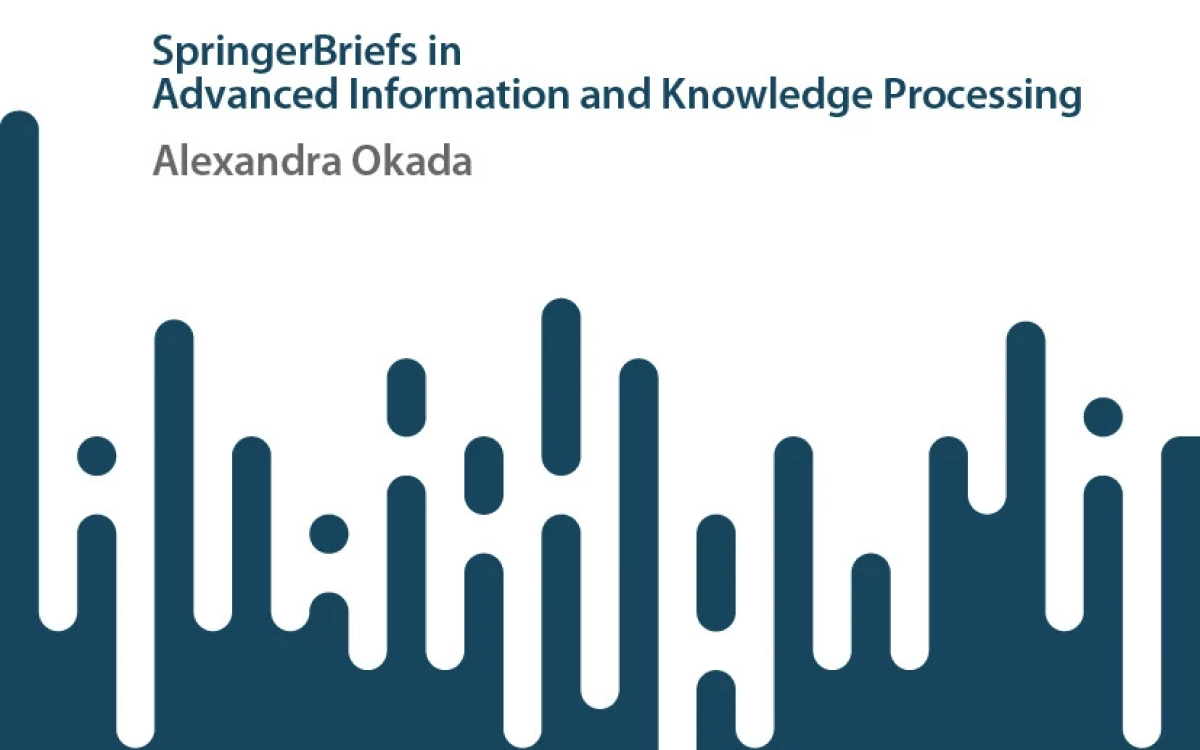
Charting change: AI-powered knowledge mapping for eco-conscious research teams
How can early career researchers and PhD students collaborate across disciplines to tackle sustainability challenges? Discover how knowledge cartography and AI tools can power collective insight, purposeful teamwork, and eco-outwards innovation.
Sustainability research demands new ways of thinking, seeing, and working together. METEOR – Methodologies for Teamworking in Eco-Outwards Research – is a collaborative initiative exploring how PhD students and early career researchers can creatively respond to global challenges. One powerful approach gaining momentum is knowledge cartography: the art of mapping concepts, connections, and shared inquiry. When combined with AI, it becomes a tool for unlocking collective intelligence and navigating complexity.
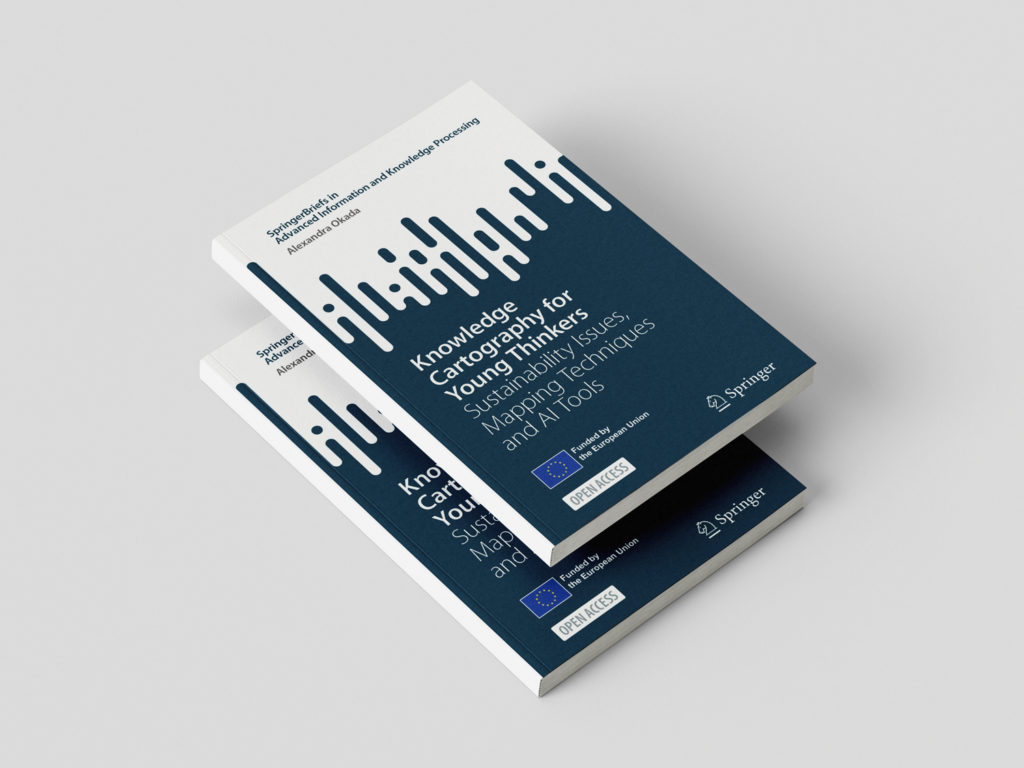
What is knowledge cartography?
Knowledge cartography is the process of visually organising ideas, data, and debates to support better thinking and communication. Like a map of ideas, it shows how questions, theories, and perspectives intersect. For interdisciplinary researchers, especially those working in sustainability science, it can help navigate uncertainty and reveal hidden assumptions.
Unlike traditional mind maps or concept diagrams, knowledge cartography is dialogical and often collaborative. It’s not just about organising what you know; it’s about surfacing what you don’t know and identifying pathways forward.
Why it matters for sustainability?
Sustainability issues—like climate change, biodiversity loss, health, gender equality among other SDGs—are complex, interconnected, and value-laden. They require diverse voices, ethical reflection, and transdisciplinary approaches. Knowledge cartography supports this by helping teams:
- Make assumptions and values visible
- Bridge disciplinary silos
- Track evolving questions over time
- Identify leverage points for action
It also promotes “slow thinking” in an age of information overload, encouraging deeper reflection and systems-level insight.
From paper to platform: AI-enhanced mapping tools
Traditionally, mapping was done with sticky notes, whiteboards, or drawing software. Now, AI tools are enhancing the process in exciting ways:
- Causal mapping platforms like Kumu or Loopy allow researchers to model feedback loops and simulate scenarios.
- Collaborative visual thinking apps like Miro, Padlet, and Obsidian support remote co-design and thematic synthesis.
- AI-integrated tools like ChatGPT (for question generation), Scite.ai (for citation mapping), and Elicit (for literature synthesis) can scaffold deeper inquiry.
These tools help teams co-create living maps of knowledge—flexible, responsive, and rooted in diverse ways of knowing.
Within EU funded projects, research teams have used knowledge cartography to:
- Design participatory workshops with community partners (e.g. Miro, Padlet, Mentimeter)
- Brainstorm multiple perspectives to enhance research and innovation pathways (e.g. Whimiscal AI)
- Reflect on personal and collective learning trajectories (e.g. Draw.io, UpSkills.Map (new))
- Map the ethical dimensions of AI in climate action
The process helps young researchers slow down, make meaning together, and navigate complexity with confidence.
Tips for getting started
- Start with a shared question – Something open-ended and generative.
- Choose your tools – Start low-tech (pen and paper) or try free platforms.
- Use different lenses – Map from scientific, ethical, cultural, or policy perspectives.
- Make it iterative – Return to your map regularly to reflect, revise, and reimagine.
Knowledge cartography isn’t just a method—it’s a mindset. For early career researchers seeking to co-create sustainable futures, it offers a way to think together, act responsibly, and engage with complexity. When paired with AI and open tools, it becomes a bridge between deep reflection and real-world impact.
Sources & Download Links
Here are some resources and platforms that readers can explore:
Loopy – Simulate Systems Thinking
Miro – Collaborative Online Whiteboard
Scite.ai – Smart Citation Assistant
Elicit.org – AI for Literature Review
Knowledge cartography empowers researchers not just to map ideas, but to co-create new pathways for action.
It’s a practical, visual, and inclusive way to navigate complexity, especially when integrated with AI tools and collective inquiry. Whether you’re designing a climate workshop or reflecting on your PhD journey, mapping together can unlock shared purpose and deeper insight
Quotes
“What I found particularly compelling was the CARE-KNOW-DO framework, which empowers young learners to engage critically with sustainability issues through exploration, understanding, and practical action. The inclusion of case studies and teaching strategies enhances the book’s applicability, offering concrete examples that demonstrate the impact of knowledge mapping on education and decision-making. This open-access work is an indispensable resource for educators and researchers alike, aiming to inspire sustainable futures.”
– Owolabi Adelana, PhD student in AI Policy
“Collaborative mapping transformed how our team understood the problem — we saw not just what we knew, but what we needed to learn together. As a PhD student, using knowledge cartography helped me find my voice in a multidisciplinary team. It made me realize that visual thinking and co-creation aren’t just tools — they’re ways of reshaping research culture”.
– Carmem Lima, Researcher in Education
Author: Alexandra Okada
Citation:
Okada A (2025). Charting change: AI-powered knowledge cartography for eco-conscious research teams. Published by METEOR – Methodologies for Teamworking in Eco-Outwards Research. CC BY-SA 4.0.
References
Okada, Alexandra (2025). Knowledge Cartography for Young Thinkers: Sustainability Issues, Mapping Techniques and AI Tools. Advanced Information and Knowledge Processing. Switzerland: Springer. DOI: https://doi.org/10.1007/978-3-031-54677-8
Okada, Alexandra; Okada, Alberto; Muller, Riulma; Moura, Rossana; Castro, Thais; Ferreira, Luciana; Oliveira, Eila; Vaz, Giseli; Benaian, Regina; Castro, Silvana; Almeida, Jaqueline and Rodrigues, Tayanne (2023). Open Schooling in the Amazon for Community Empowerment: A Case Study in the TUPÉ Sustainable Development Reserve. Milton Keynes, UK: The Open University. DOI: https://doi.org/10.21954/rtrn-pb82
Okada, Alexandra; Sherborne, Tony; Panselinas, Giorgos and Kolionis, Georgios (2025). Fostering Transversal Skills Through Open Schooling Supported by the CARE-KNOW-DO Pedagogical Model and the UNESCO AI Competencies Framework. International Journal of Artificial Intelligence in Education(Early Access). DOI: https://doi.org/10.1007/s40593-025-00458-w
Keywords
Knowledge Cartography, Sustainability, AI Mapping Tools, Collaborative Problem Framing, Collective Decision Making
